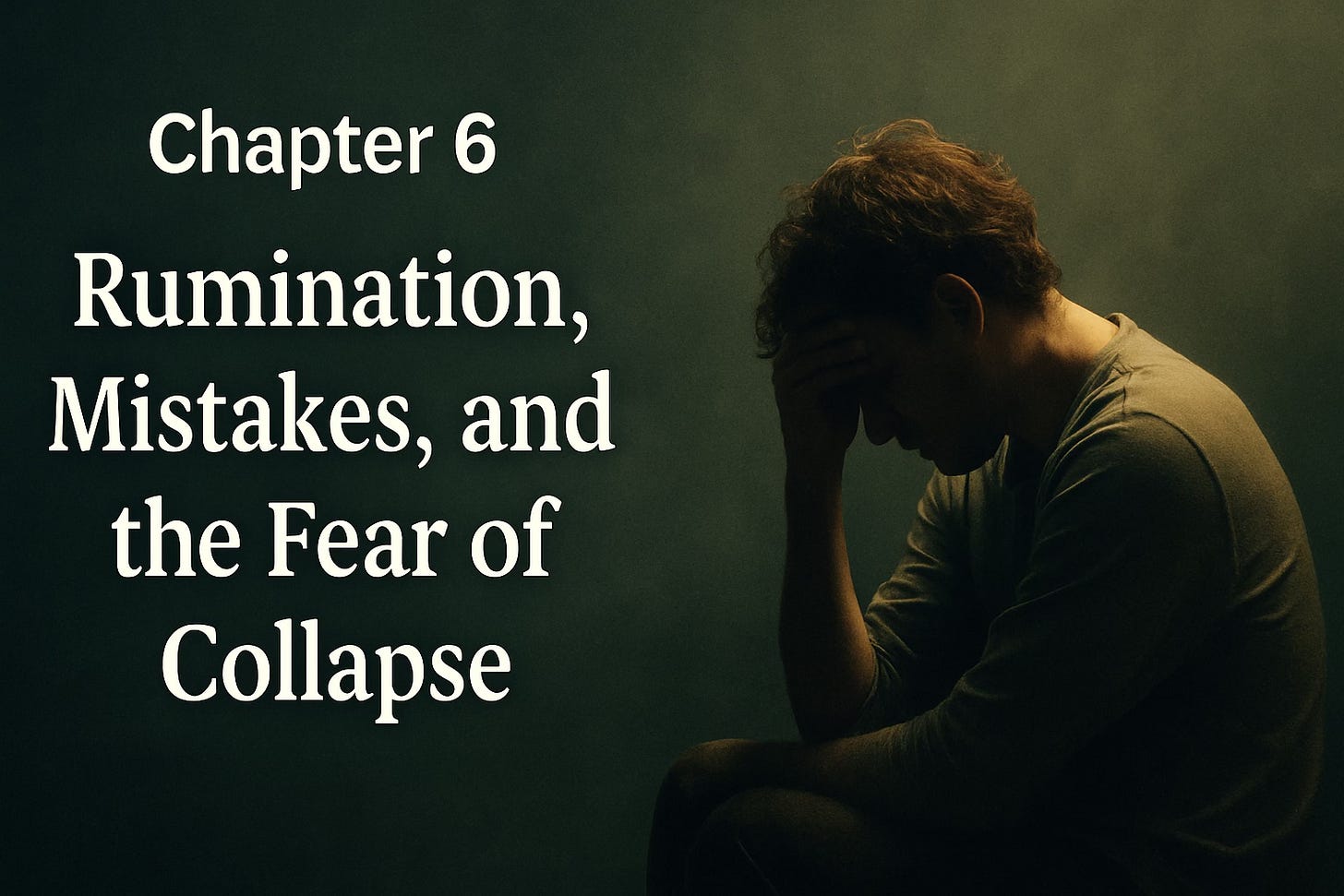Chapter 6: Rumination, Mistakes, and the Fear of Collapse
From the THX Series Hub - Behind the Mask: The Invisible Labor of Neurodivergent Survival
For many neurodivergent people, mistakes don't feel small.
They feel existential.
A missed email. A forgotten meeting. A word said too bluntly. A boundary crossed unknowingly. A moment of unmasked emotion.
What others shrug off as "human error" often triggers a deep, physical panic:
Will they see me differently now?
Will I lose their trust, their patience, their willingness to work with me?
Will all the invisible labor I’ve invested collapse with this one misstep?
This isn’t overreaction. It’s survival math.
When your belonging has been contingent on managing others' emotions perfectly, any mistake feels like the unraveling of the mask—and the system of safety it creates.
Why Mistakes Feel So Big
Emotional labor is invisible. Others don't see the hundreds of micro-adjustments you make daily. They only notice the one moment you slip.
Tolerance is conditional. Inclusion often feels fragile—one wrong move can trigger disproportionate fallout.
Self-trust is built on hypervigilance. When you've survived by constantly monitoring for emotional risk, a mistake feels like failure at your most basic survival strategy.
Prospect Theory rules perception. Loss (of trust, safety, credibility) feels catastrophic compared to the perceived minor gain of "learning from mistakes."
THX Frameworks Behind the Fear of Collapse
Prospect Theory — Fear of loss outweighs hope of resilience.
12 Utilities — Systems provide inconsistent Security and Availability, making recovery after mistakes uncertain.
PERMAH — Positive Emotion, Engagement, and Achievement fracture under the weight of internalized fear.
Admiration Equation — One unresolved or unpleasant micro-moment can eclipse hundreds of positive ones.
Micro-Moments — Every mistake feels like the rupture of an entire sequence of carefully built trust.
The Emotional Landscape
Rumination — Replaying mistakes, conversations, facial expressions, tone of voice over and over.
Perfectionism — Not as pride, but as a defense mechanism.
Anxiety — Hyper-focusing on future interactions to avoid repeating the mistake.
Self-erasure — Shrinking, masking harder, withdrawing to avoid future risk.
Rumination isn't about narcissism.
It's about survival.
It's the brain trying to reverse-engineer what went wrong—not to blame, but to prevent collapse.
Final Thought
When mistakes feel existential, it’s not because we think we’re perfect.
It’s because we know how fragile acceptance can be.
And until systems become strong enough to hold our humanity without fracture, rumination will remain a rational, painful act of self-preservation.
True inclusion isn’t just about welcoming our best days. It’s about making space for our real ones too.




